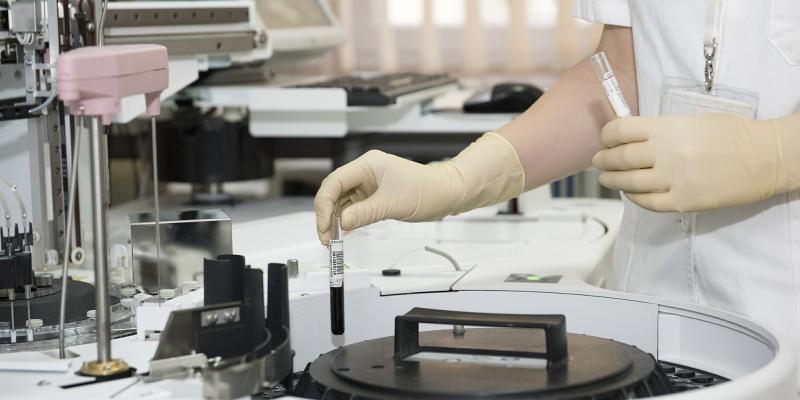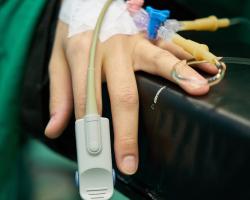The blood for tests should be drawn in the morning, after the night's rest, on an empty stomach, while retaining the current diet - this is one of the rules defined in quality standards for medical diagnostic and microbiology laboratories.
The standards defined in the Ministry of Health's regulation on standards for medical diagnostic and microbiology laboratories specify what a referral to a test should include, and also regulate the issues concerning laboratory medical diagnostics.
Standards of referrals
Under the regulation on standards for medical diagnostic and microbiology laboratories, a referral for a test should include the patient's data, date of birth, place of residence, PESEL (Personal Identification Number), and the issuing doctor's stamp and signature, the type of material and the origin, date and time of collecting the sample, and data on the collecting person, among other things.
The referral may be issued in electronic form.
The regulations also define the procedures for collecting samples for tests, taking into account the way the patient is prepared, the type and volume of the collected material and the way it was collected.
Blood test and urinalysis
Under the regulation, the urine for the routine general urinalysis must be obtained from the first morning micturition.
Apart from that - as it was written - the tested blood and urine should be obtained:
- in the morning, after a night's rest,
- on an empty stomach,
- while retaining current diet,
- before treatment, or after the discontinuation of drugs that might influence the level of the tested element, providing this does not disturb the treatment process.
Storing and transporting
Containers with the collected material should be tagged with the patient's first name and surname, PESEL No. or patient's identification number, or a bar code.
The person collecting material should
- each time put on disposable gloves, only for the purposes of collecting the material,
- clearly identify and verify the identity of the patient from whom the material was collected,
- confirm the collection of the material with a signature.
The laboratory is obliged to keep the records concerning the stored material before and after the test was performed, taking into account the place, time, temperature, methods of storing, and data on the persons responsible for storing the material.
Material collected for the test should be transported and delivered to the laboratory in conditions that do not change its characteristics. It should be done by authorised persons, in closed test tubes or containers, in closed collective packaging, tagged as "infectious material".
Quality control
The laboratory may apply research methods which correspond to current medical knowledge and are published in international or national literature on the subject.
Those methods are prescribed by referral centres recommended by the national consultant in the given area of medicine, complying with the recommendations of the producers of medical products used in in-vitro diagnostics or developed and described for the needs of the given laboratory, including the validation process documented by the laboratory.
The laboratory should maintain constant internal control over the quality of tests, according to the knowledge based on scientific evidence and using state-of-the-art control instruments.
The laboratory should also constantly take part in basic programmes of external quality assessment organised by the Centre for Quality Assessment in Laboratory Diagnostics.
It is a unit established by the Ministry of Health which is obliged to take care of the reliability of test results by organising, inter alia, comparative programmes of interlaboratory tests.









Comments (0)